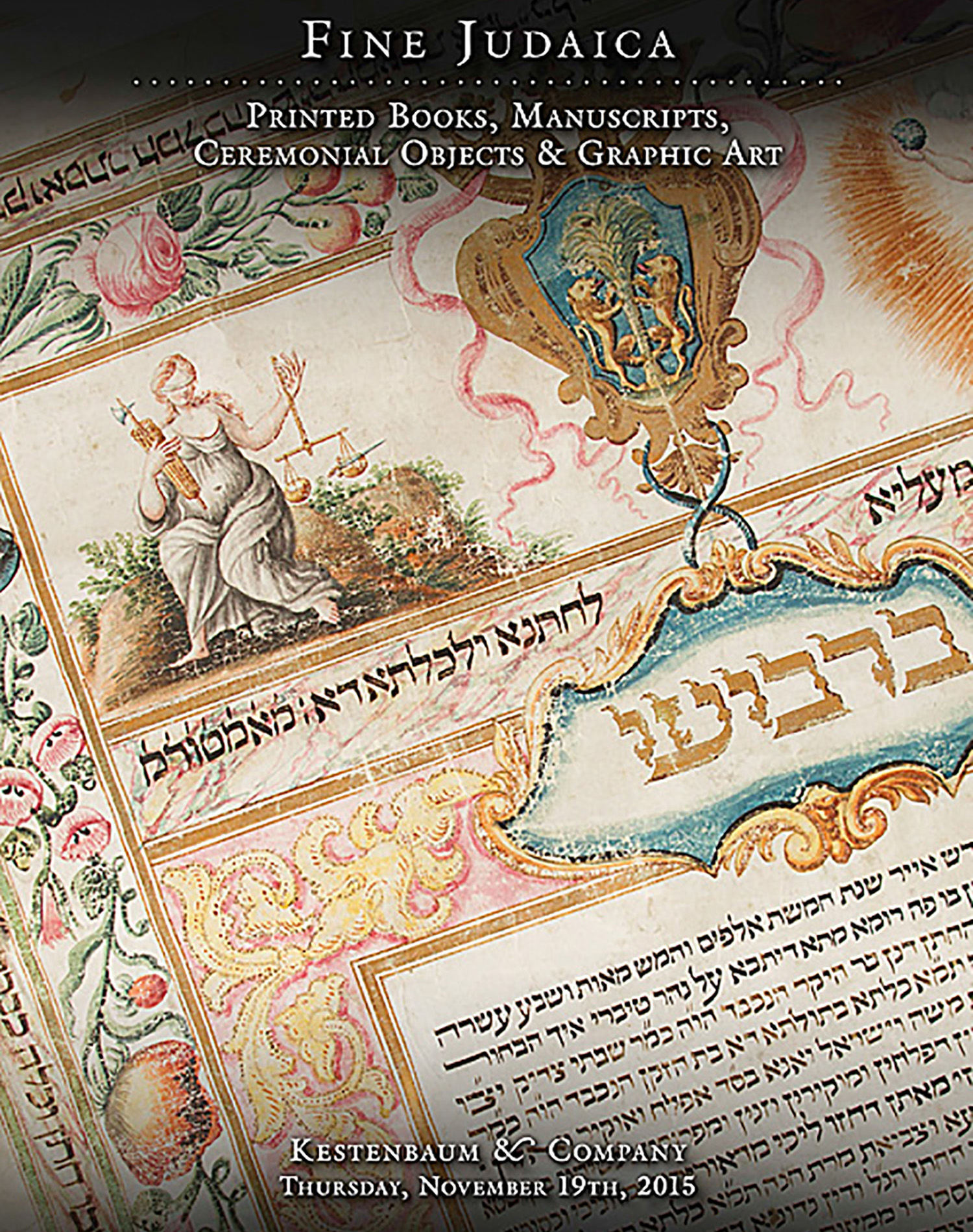(HOLOCAUST)

AUCTION 66 |
Thursday, November 19th,
2015 at 1:00
Fine Judaica: Printed Books, Manuscripts, Ceremonial Objects and Graphic Art
Lot 222
(HOLOCAUST)
Kaunas (Kovno), Lithuania: 11th December, 1939 / 29th July, 1940 / 1st August, 1940
Est: $10,000 - $15,000
PRICE REALIZED $15,000
<<A highly rare original Travel Document issued by Japanese diplomat Chiune Sugihara and Dutch diplomat Jan Zwartendijk. This single paper allowed the Jewish bearer to escape an otherwise certain death in Lithuania.>>
Chiune (Sempo) Sugihara served as Vice-Consul of the Empire of Japan in Lithuania, based in Kaunas. During World War II, he helped thousands of Jews leave the country by issuing transit visas for travel to Japan. Most of these Jews were refugees from Nazi-occupied Western Poland, or Soviet-occupied Eastern Poland, as well as residents of Lithuania.
In the Fall of 1939, after leaving his position as Deputy Foreign Minister in Manchuria, Sugihara was posted to Kaunas to serve as Japan’s Consul with orders to monitor Soviet and German troop movements in the Baltic region. In the Summer of 1940, Lithuania was officially annexed by the Soviet Union as a constitutent Soviet republic and all foreign diplomats were ordered expelled. Jewish refugees present in Kaunas were terrified as now the in addition to escaping from Nazism the threat of Communist control arose. Possibilities for escape were few: All of Western Europe was now occupied by the Nazis, thus the gateways to Palestine and the American continent were closed. Any remaining option required diplomatic permits – visas – to cross international borders.
Agonized by the plight of the Jewish refugees and with the support of L. P. de Decker, the Dutch Ambassador to the three Baltic States, who resided in Riga (Latvia), the part-time acting Dutch consul in Kaunas, Jan Zwartendijk, agreed to help by providing documentation for travel to the Caribbean island of Curaçao. Yet such a journey would require passage through a destination accessible from where those fleeing currently were. Chiune Sugihara aware that these Jewish applicants were in danger the longer they stayed in Lithuania - and with no evidence of support from his Foreign Ministry - began issuing transit visas, for travel eastwards, through Japan. Soon he was ordered by Tokyo to cease issuing such paperwork, yet so troubled was Sugihara by the frightening situation of the Jews, he chose to disobey the order all the while receiving warnings from his superiors of personal prosecution. On the 4th September, the Soviets forcibly closed the Japanese legation, yet even from the train that was to take him out of Lithuania, Sugihara continued to issue visas - often single documents suitable to save an entire family.
Eleven months later the small window of escape was gone. Lithuania was occupied by Germany and the majority of the Jews that still remained in the country were murdered.
In 1985, the State of Israel honored Chiune Sugihara (1900-86) with the title “Righteous Among the Nations” for his actions, the only Japanese national to be so titled. Later, in 1997, Jan Zwartendijk (1896-1976) the Dutch Consul in Kaunas, was posthumously honored as “Righteous Among the Nations.”
By breaking diplomatic protocol, the selfless actions of these two diplomats based in Lithuania in the Summer of 1940 enabled thousands of desperate Jews the possibility of surviving the murderous Nazi onslaught against European Jewry.
<<Seventy-five years later, It is estimated that More Than 40,000 Jews (survivors and their descendants) are alive today due to the issue by Zwartendijk and Sugihara of this “Visa for Life.”>>
